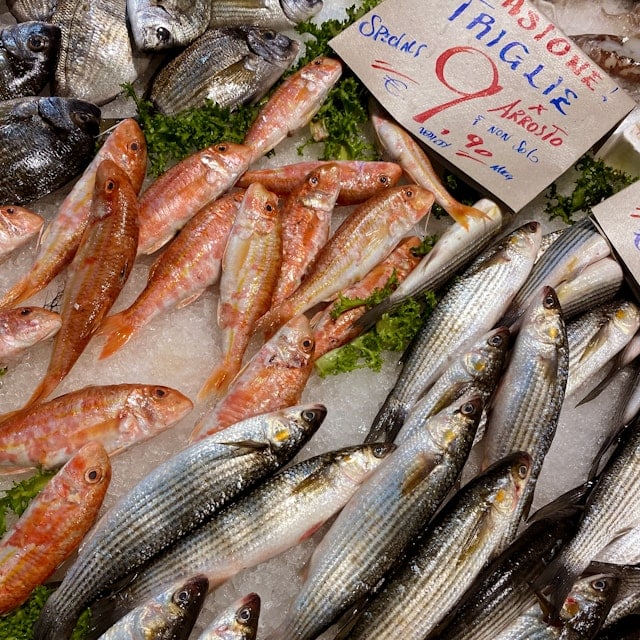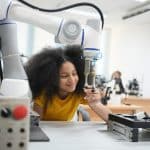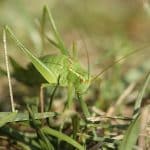In today’s eco-conscious environment, sustainability has become a top priority. You might be familiar with sustainable practices in agriculture, but have you ever considered how it applies to aquaculture? Aquaculture, or the farming of fish and other marine species, has the potential to offer an economic, environmental, and food security solution for the UK. It’s about nurturing fish populations in a manner that is sustainable, respects aquatic ecosystems, and supports the global demand for seafood.
Understanding the Basics of Aquaculture
Aquaculture, is, in essence, the cultivation of freshwater and marine species in controlled environments. It has been around for centuries, with the Chinese being one of the first cultures to engage in fish farming. In the current scenario, aquaculture has taken on a renewed significance due to the decline of wild fish populations and the growing demand for seafood.
Also to see : How to Implement a Dynamic Pricing Model for UK’s Public Transportation?
Globally, the aquaculture industry has been growing at a faster pace than any other animal food-producing sector. In the UK, it’s a significant contributor to the economy, with salmon being the country’s top farmed fish species. Over time, the UK has developed a robust aquaculture sector, with farms scattered along the coastline that produce a plethora of marine species, including salmon, trout, oysters, mussels, and scallops.
However, as with any industry, it also has its share of challenges, particularly in terms of sustainability.
Also read : What’s the Role of Community Energy Projects in Empowering UK Neighbourhoods?
The Importance of Sustainable Aquaculture
As demand for seafood continues to rise, so does the pressure on our oceans’ wild fish populations. Wild-caught seafood could not supply the global demand alone, which has led to overfishing and depletion of fish stocks. Aquaculture can provide a solution by producing food and creating livelihoods without depleting wild fish populations, but only if it’s done sustainably.
Sustainable aquaculture ensures that the farming practices used do not harm the environment or the species being farmed. It means using resources efficiently and responsibly, minimizing waste, and ensuring the welfare of the fish. It’s about striking a balance between economic growth and environmental protection.
Key Practices for Cultivating Sustainable Aquaculture in the UK
Balanced and Efficient Feed
Feed is a vital aspect of aquaculture. It significantly influences the growth of fish and the environmental impact of farms. An important step towards sustainable aquaculture is the use of balanced and efficient feed.
Traditionally, fish feed was rich in fishmeal and fish oil, but with the growing demand for aquaculture, these ingredients are becoming unsustainable. The industry is now turning to alternative sources such as insect meal, algae, and even genetically modified plants.
These alternatives can not only reduce the dependency on wild-caught fish for feed but also improve the nutritional quality of farmed fish. For instance, salmon, known for its high omega-3 content, often gets these beneficial oils from the fishmeal in their feed. Alternative feeds can maintain these nutritional levels while reducing environmental impact.
Reducing Disease and Promoting Fish Health
Disease can quickly decimate fish populations in aquaculture, resulting in significant economic losses. To ensure the sustainability of aquaculture, it’s crucial to prioritize fish health and disease management.
This can involve various strategies, including regular health checks, maintaining optimal water quality, and reducing stress on fish, which can make them more susceptible to disease. It also involves using vaccines and medications responsibly to avoid the development of antimicrobial resistance.
Moreover, promoting fish health also aligns with the ethical aspect of sustainability, ensuring that farmed fish are treated humanely and live in comfortable conditions.
Minimising Environmental Impact
Aquaculture farms, if not managed properly, can have a detrimental impact on the surrounding environment. It’s crucial that farms minimise their environmental footprint to ensure sustainability.
This can be achieved through various means, such as reducing waste, preventing escapes of farmed fish into the wild, and managing the use of chemicals and medicines. Farms can also adopt recirculating aquaculture systems (RAS), which recycle water and reduce the amount of waste released into the environment.
In addition to these practices, there’s a need for stringent monitoring and regulation to ensure that all farms adhere to environmentally responsible practices.
The Future of Sustainable Aquaculture in the UK
While the UK’s aquaculture industry has made significant strides towards sustainability, there’s still work to be done. The future of sustainable aquaculture lies in continuous innovation, research, and technological advancement.
For instance, the use of digital technology and data analytics can enable real-time monitoring of fish health and environmental conditions, allowing farmers to make informed decisions and take quick action. Similarly, advancements in feed technology can help further reduce the industry’s reliance on fishmeal and fish oil.
Moreover, consumer awareness and demand for sustainable seafood will continue to drive the industry towards more sustainable practices. As consumers, you can play a part in promoting sustainable aquaculture by choosing to buy seafood that has been responsibly farmed.
In conclusion, cultivating sustainable fish populations is not just about securing the future of the aquaculture industry. It’s about preserving our oceans, protecting biodiversity, and ensuring that future generations can continue to enjoy the abundance of the sea.
Integrating Technology and Aquaculture Practices
The integration of technology with traditional aquaculture practices is a promising move in the direction of sustainable development in the UK’s aquaculture industry. With the advent of digital technology and data analytics, monitoring the health of aquatic species and their environmental conditions has become increasingly feasible.
Through real-time monitoring, farmers can make informed decisions and take corrective actions promptly, significantly enhancing the fish farms’ overall efficiency and productivity. For example, employing tools like Google Scholar can provide immediate access to a vast range of academic research, contributing towards improved farming techniques and the sustainable growth of farmed fish.
Innovative aquaculture systems such as recirculating aquaculture systems (RAS) hold great potential in minimising the environmental footprint of aquaculture farms. RAS recycle water within the system, reducing water use and decreasing the amount of waste released into the environment. Such sustainable aquaculture practices can help maintain the delicate balance of the ecosystem, protecting fish stocks and biodiversity.
Moreover, technology can also contribute to reducing the industry’s reliance on fishmeal and fish oil. Advancements in feed technology can aid in the development of sustainable alternatives that can maintain the nutritional quality of farmed salmon and other aquaculture species.
Effect of Climate Change on Aquaculture Production
Climate change poses a significant challenge to the sustainability of the UK’s aquaculture industry. It has the potential to affect the ocean’s temperature, acidity, and oxygen levels, all of which can have detrimental effects on fish health and aquaculture production.
Rising sea temperatures can make fish more susceptible to disease and negatively impact their growth rates. Moreover, increased ocean acidity can harm shellfish such as oysters, mussels, and scallops, which are significant contributors to the UK’s seafood production.
To combat these challenges, aquaculture farms need to adapt their practices. The use of innovative, climate-resilient farming systems and species that can withstand changing environmental conditions can help ensure the continued sustainability of the industry.
For instance, farming native species that are well adapted to local conditions or using selective breeding techniques to enhance resilience to climate change can be effective strategies.
Conclusion: Towards a Sustainable Future
The cultivation of sustainable fish populations in the UK’s aquaculture industry is not a choice but a necessity. With increasing pressure on wild caught fish stocks, the role of aquaculture production for human consumption has never been more crucial.
Sustainable aquaculture practices such as the use of balanced feed, promoting fish health, minimising environmental impact, and integrating technology can contribute significantly towards this goal. However, it will require continuous innovation, research, and strict regulatory frameworks.
Moreover, the challenges posed by climate change necessitate the development of adaptive and resilient farming practices. The Scottish salmon industry, a major player in the UK’s aquaculture sector, must lead the way in adopting these sustainable measures.
As consumers, we too have a role to play. By choosing farmed fish from sustainable sources, we can contribute to the demand for responsibly farmed seafood, thus influencing the aquaculture industry’s practices.
The journey towards sustainable aquaculture is a complex one, but with concerted efforts from all stakeholders, it is achievable. The ultimate goal is not just about securing the future of the industry but also about preserving our oceans, protecting biodiversity, and ensuring that future generations can continue to enjoy the abundance of the sea.











